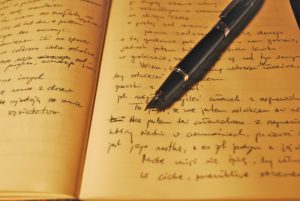What I Told the DT Administration: Business Case for Paris Accord
Here’s a letter I wrote to US Cabinet Secretaries Tillerson, Perry, and Pruitt (State, Energy, EPA), and to Massachusetts Governor Charlie Baker (with a different subject line). Please write your own letter. You are welcome to model mine. Click to send an email directly to Pruitt and Perry and link to Tillerson’s contact form.

As a business owner, I ask that you maintain the US’s role in the Paris Climate Accord. The Paris Accord marks a wonderful opportunity for American business to make headway against the widespread perception that European businesses are more environmentally focused. American businesses cannot win back the international market share they’ve lost to environmentally forward-thinking European companies if our own government is seen as sabotaging progress. It would not even shock me if, should the US pull out, activists start organizing boycotts on all US-based companies. Boycotts like this are economically disastrous for the US, just as similar boycotts created enormous pressure on South Africa during the apartheid years and are now beginning to affect the economy of Israel over its presence in Palestinian territories.
I am a consultant to green and social change companies, and I see the positive bottom-line impacts of meeting or exceeding climate goals over and over again. Industries have found that climate mitigation, done right, lowers costs and boosts revenues, thus increasing profitability. I recently attended a conference with speakers from Nestlé, IBM, Google, Pirelli, Coca-Cola, Paypal, clothing manufacturer VFC, and many other global corporations, and the message from every speaker was about the bottom-line benefit of greening their company. This is why companies as diverse as Monsanto, Intel, Dupont and General Mills are among the 1000 companies that signed a public letter this winter urging the US to stay in the Paris agreement.
Progress on climate will also have beneficial effects in the wallets of ordinary Americans–because it will improve health. Reducing asthma and other carbon-related diseases means more discretionary spending and thus an economic boost.
Finally, the long-term picture of addressing climate change in a meaningful way means the creation of hundreds of thousands of new jobs in the energy, manufacturing, and agriculture/food sectors as well as a more livable world for our children and grandchildren. If anything, the Paris targets should be seen as a starting point. And if the US embraces this fully and uses its technological leadership, it will create market opportunities around the world for US companies selling the technologies to make this transition.
Sincerely,
Shel Horowitz – “The Transformpreneur”(sm)
________________________________________________
Watch (and please share) my TEDx Talk,
“Impossible is a Dare: Business for a Better World”
https://www.ted.com/tedx/events/11809
Contact me to bake in profitability while addressing hunger,
poverty, war, and catastrophic climate change
Twitter: @shelhorowitz
* First business ever to be Green America Gold Certified
* Inducted into the National Environmental Hall of Fame
https://goingbeyondsustainability.com
https://transformpreneur.com
mailto:shel@greenandprofitable.com * 413-586-2388
Award-winning, best-selling author of 10 books. Latest:
Guerrilla Marketing to Heal the World (co-authored with Jay Conrad Levinson)
_____________________________________________
